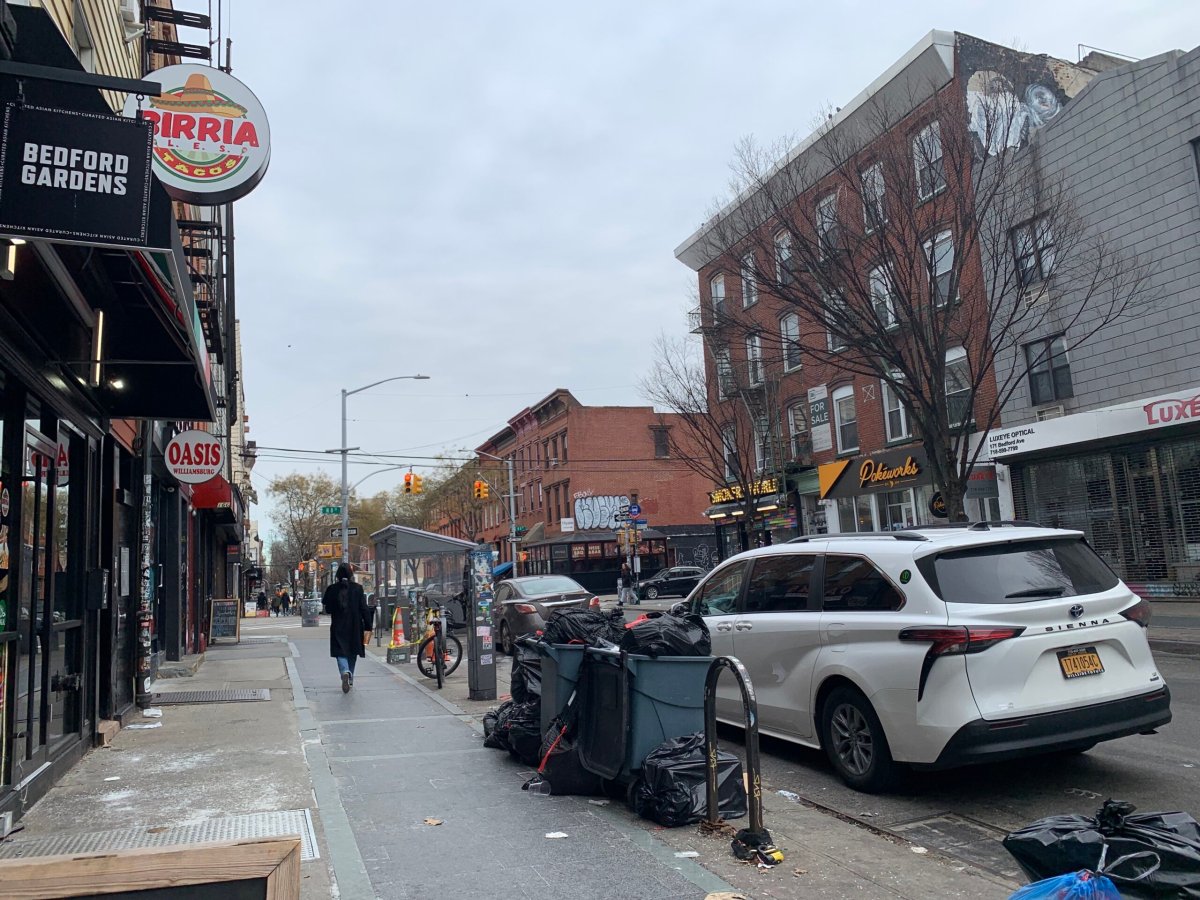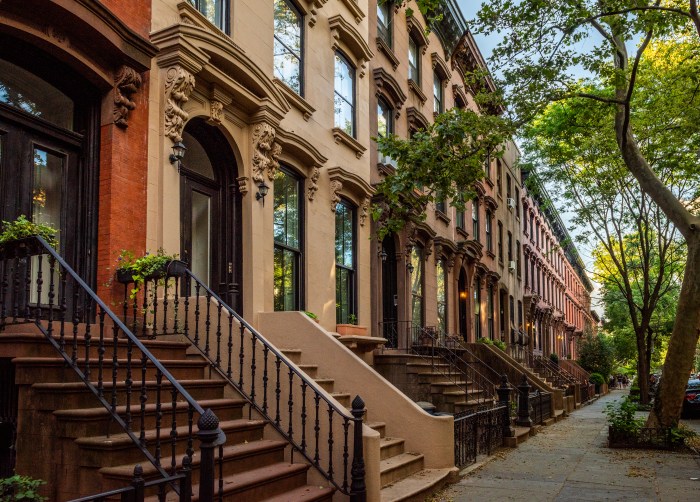Over the past few decades, Williamsburg has become one of New York City’s most desirable — and most expensive — neighborhoods. Filled with new apartment buildings, trendy restaurants and businesses, and young professionals as well as longtime residents and families, the nabe is well-known even outside of the city.
But despite its popularity — and all the money spent on rent and taxes — residents in the Northside of Williamsburg have some long standing complaints about dirty streets, overflowing trash cans, and poorly-kept public spaces.
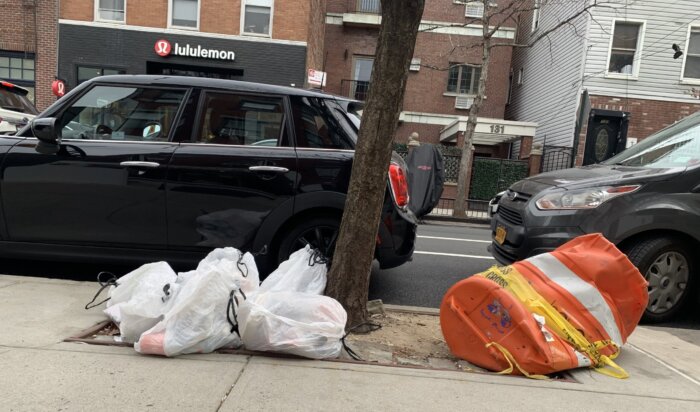
A group of locals, including community leaders and elected officials, are trying to remedy that by forming a new Business Improvement District, or BID, on the Northside.
Proponents tout the benefits of a BID
BIDs are nonprofit organizations largely funded by a tax assessment levied on local property owners. Using those funds, BIDs often provide supplemental cleaning and trash pickup services, manage beautification and improvement projects, hold events, and help to support and market local businesses.
Katie Denny Horowitz, Executive Director of the North Brooklyn Parks Alliance and a member of the Northside BID steering committee, said she has been thinking about a new BID in Williamsburg for years, in part because it would offer sustainable funding to maintain northern Brooklyn’s many parks and greenspaces.
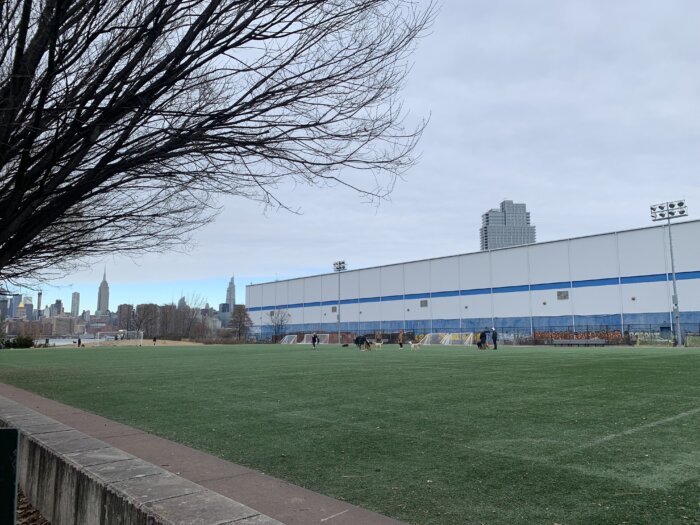
The pandemic, and subsequent city budget cuts, drove home the need for one.
“[During the pandemic], people’s experience on the ground in what I’ll call the public realm was pretty horrific in some places,” Horowitz said. “Because city services were cut so bad, and because people were outside more, there was just overwhelming trash, overwhelming weeds, people weren’t taking care of the space around them.”
Neighborhoods with more private funding – like those with BIDs — generally fared better, Horowitz said, because there were people to step up where the city had been forced to cut back. In Williamsburg – where high-end businesses like Chanel stand alongside mom-and-pop shops — there seem to be plenty of resources and lots of motivation to make the streets something to be proud of.
“But at the same time, you have to, right now, walk over overgrown street tree beds, and trash piles, and maybe kick a rat on the way,” Horowitz said.
So Horowitz, along with a number of local stakeholders, including Council Member Lincoln Restler, have taken the first steps to creating the Northside BID — a process that can take several years.
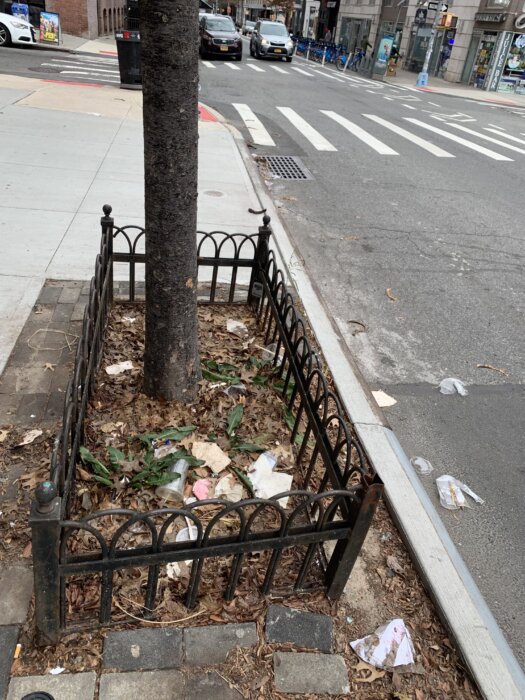
“The northside of Williamsburg is one of the busiest and most dynamic commercial areas that is wholly lacking a business advocacy organization, and it has for many years,” Restler said. “I’m a big believer in Business Improvement Districts that provide supplemental sanitation, public safety support, marketing and events opportunities for businesses and the community. We really need one on the Northside.”
Taking the first steps
Working alongside the city’s Department of Small Business Services, they have formed a Northside BID Steering Committee, made up of more than a dozen residents, commercial tenants, and property owners from within the tentative district boundaries — which stretch from the East River to Roebling Street and from about North 14th Street to North Third Street.
The next step for the prospective BID is a District Needs Survey, which they began circulating in late November. The survey asks locals where they typically spend time in the district, how they spend that time, and what their major concerns are.
Once the SBS determines enough people have responded — and that the results are properly representative of the district — they’ll analyze the data and use it to finalize the size and shape of the BID, its budget, the services it will offer, and the tax assessments that will be required to support it.
“Part of the reason for the length of time is because, rightly so, SBS wants to ensure that something like a tax assessment is taken very seriously,” Horowitz said. “And that the people who are assessed have the opportunity to give feedback and have their voices heard.”
All BIDs have different tax assessments based on where they are located and the services they offer — if a BID offers public security and wayfinding in addition to marketing and maintenance services, the assessment might be higher, Horowitz said.
According to the SBS, commercial and mixed-use property owners pay higher tax assessments for BIDs, while residential owners pay less.
Once all of that is done, the Steering Committee will have to gather notices of support from the community, host public meetings, and create a draft district plan — then present that plan to SBS, the local community board, the city’s City Planning Commission, and the City Council.
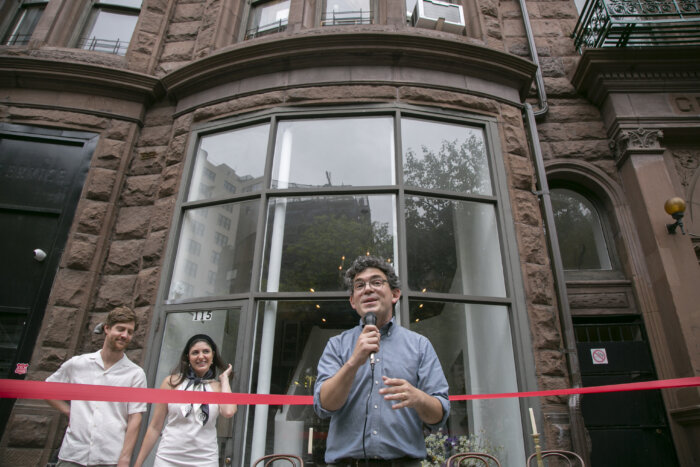
If and when the plan is passed by the council and signed into law by the mayor, the BID can officially get started. The whole process is likely to take several years, but the team is optimistic.
Restler pointed to other local BIDs and the work they do — the Montague Street BID is helping to pilot the city’s Clean Curbs program, where public trash is collected in rat-proof containers, rather than left on the street; while the Dumbo BID has become known for its holiday events and year-round free concerts and art programming.
“What I’m most excited about that we’re trying to achieve is a Business Improvement District that advocates for businesses, that improves quality of life and sanitation, and that maintains our public and open spaces,” he said. “This entity has the potential do be a real game-changer for residents and businesses and people who enjoy hanging out in the northside of Williamsburg.”


